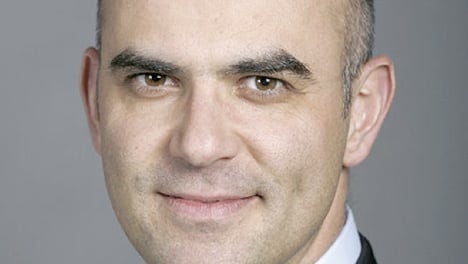Berset was quoted by the ATS news agency as making the comment on Wednesday when the lower house of parliament rejected the initiative by a vote of 124 to 61.
The senate earlier opposed the proposal, which is set to go to a national referendum, although a date for the vote has yet to be fixed.
Left-wing parties support the initiative, which would replace a system involving around 60 private insurers who provide mandatory healthcare coverage with a range of premiums, in addition to optional supplementary cover.
Right-wing parties say the current model provides competition and a method of financing healthcare that works well with a high level of satisfaction from users.
They argue that a single-insurer system would remove freedom of choice for patients to choose doctors and hospitals, although this is contested by backers of the initiative.
It would be like having “neither Migros nor Coop but a single store, with one kind of yogourt at the same price,” Hansjörg Walter, a Swiss People’s Party MP from Thurgau, told parliament, ATS reported.
One of the arguments made in favour of a single insurer is that it would reduce administrative costs, but conservatives argue that this represents only five percent of healthcare spending and the amount is dropping.
Jacqueline Fehr, a Socialist MP from Zurich, maintained that having 60 insurers with 300,000 models of insurance offered “chaos” rather than competition, with “business” taking precedence over the well-being of the Swiss population, ATS reported.
Every year, Swiss residents have the right to change their healthcare insurer, and companies compete through advertising to attract new customers.
The parliament has urged a vote on the initiative as early as possible, with some in the right-wing camp fearing that the issue could offer a platform for left-wingers in the 2015 federal elections, according to ATS.
The federal government is opposed to the initiative and Health Minister Berset, a Socialist party member, has been obliged to go along with the cabinet’s decision.
But Berset said he hoped MPs would support other measures to reduce healthcare costs.



 Please whitelist us to continue reading.
Please whitelist us to continue reading.
Member comments